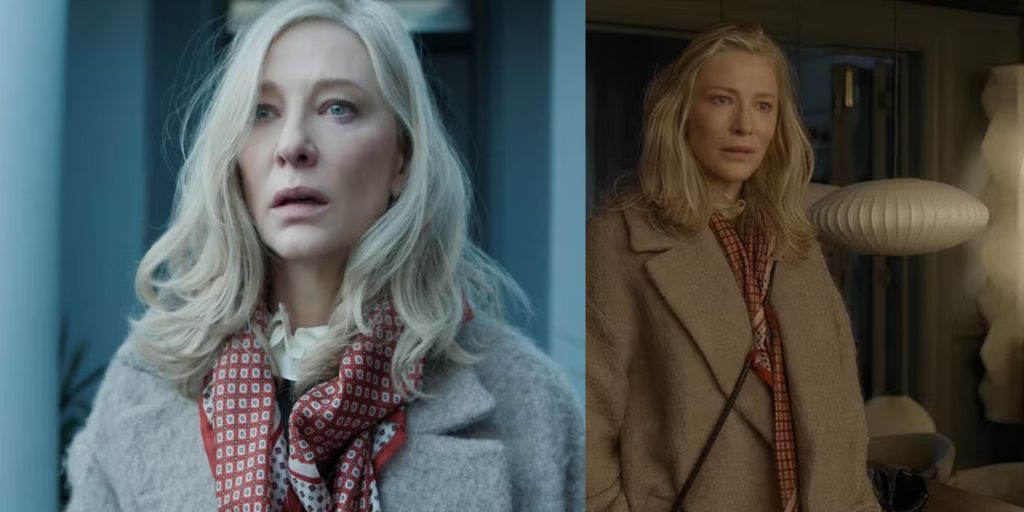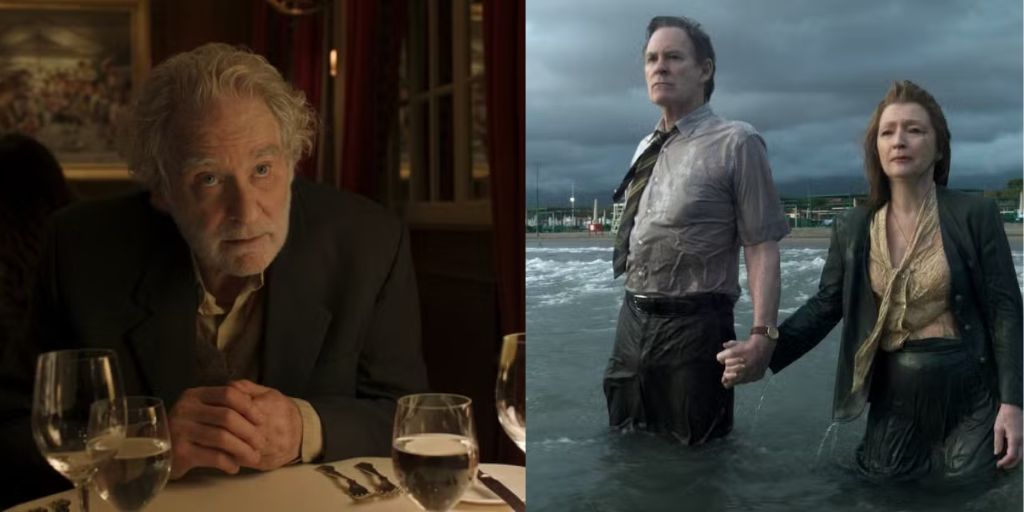With an impressive cast and under the skilled direction of Alfonso Cuarón, Disclaimer has reached its emotional conclusion on Apple TV+.
The finale brings to light the truth behind what happened years ago between young Catherine Ravenscroft (played by Leila George) and Jonathan Brigstocke (played by Louis Partridge).
This revelation is especially painful for Jonathan’s father, Stephen (played by Kevin Kline), who has spent years relentlessly trying to dismantle Catherine’s (played by Cate Blanchett) life in a quest for revenge.
In its final episode, Disclaimer unravels not only the mystery of Catherine’s traumatic past but also reveals Stephen’s motivations, rooted in his deep bond with his son and a buried understanding of Jonathan’s true nature.
This series, based on Renée Knight’s novel, concludes with a sense of resolution, yet it leaves viewers pondering complex issues about memory, guilt, and forgiveness.
The following article breaks down each pivotal moment in Disclaimer’s finale and its implications for Catherine, Stephen, and those affected by Jonathan’s actions.
Catherine Shares the Painful Truth
The episode begins with Catherine forcing her way into Stephen’s home. In the previous episode, she had managed to gain access to his house, holding a knife and insisting on the chance to finally tell her story.
Stephen, who initially agrees to listen, tries to calm the situation by offering her tea and secretly adding a drug to her drink.
Despite this, Catherine is able to describe in detail the traumatic events that took place between her and Jonathan years ago in Italy.
She tells Stephen that Nancy Brigstocke’s (Lesley Manville) novel, The Perfect Stranger, indeed captured the atmosphere of that holiday, yet it missed the most critical and painful facts.
Throughout the season, we have seen flashbacks showing events from The Perfect Stranger, where a young mother, restless and left alone during a vacation, begins an affair with a young man who becomes infatuated with her.
Eventually, he proposes that they live together, but she leaves him heartbroken after he saves her son from drowning.
However, as Catherine explains, the reality of that experience was far darker. She reveals that Jonathan actually assaulted and raped her, entering her bedroom and forcing her to take explicit photographs.
During that time, he repeatedly followed her and eventually invaded her bedroom at night. Catherine recalls how Jonathan threatened to kill both her and her young son if she didn’t cooperate.
Stephen initially reacts with disbelief. He demands evidence of her claims, but Catherine tells him that she destroyed all of it after Jonathan’s death, hoping to move forward from the pain.
She wanted to forget the memory of that horrific day and feared that if Jonathan had survived, he might have continued to blackmail or hurt her.
Although he saved her son, Nicholas, from drowning, Catherine saw this as a manipulation rather than a sign of kindness, believing that he might have used it to control her later.
Though she did her best to put the trauma behind her, Catherine explains that she never anticipated the extent to which it would resurface and take over her life years later.
Nicholas Plays a Pivotal Role in Stephen’s Understanding
Catherine’s son, Nicholas (played by Kodi Smit-McPhee), remains in the hospital following a drug-induced stroke. In the previous episode, Stephen had attempted to end Nicholas’s life, yet Catherine arrived just in time to stop him.
Now, after hearing Catherine’s confession, Stephen is still overwhelmed by confusion, disbelief, and anger, but he remains focused on his initial intention.
As he moves to kill Nicholas again, Nicholas unexpectedly wakes up, holds Stephen’s hand, and says, “Mom, I want to go.”
This brief but powerful moment brings a wave of guilt and remorse to Stephen, who later admits his actions to Catherine’s husband, Robert (played by Sacha Baron Cohen).
Nicholas’s brief statement to Stephen hints that he may have been more aware of what happened in Italy than anyone suspected. Later, as Stephen burns the photographs Jonathan took, he notices the faint reflection of a young boy in one of the images—a young Nicholas.
This detail suggests that Nicholas may have witnessed part of the event, though he might have been too young to fully comprehend it.
Nevertheless, the trauma left him resentful toward Catherine, with avoidance being his way of handling the unresolved pain. Finally, mother and son open up to one another, allowing them to begin healing together.
For Stephen, the revelation of Nicholas’s presence in the photograph adds a crucial piece of evidence that affirms Catherine’s story. It aligns with another fact—that Jonathan’s girlfriend, Sasha (Liv Hill), abruptly left during the vacation.
Nancy left this detail out of her novel, The Perfect Stranger, but Stephen’s discovery confirms that there were fractures in Jonathan’s behavior long before the trip. This moment forces Stephen to face a harsh truth he has long suppressed.
He admits to himself that deep down, he always had an unsettling awareness of his son’s dark potential but chose to ignore it out of his loyalty and love for Nancy.
Now, burdened by the terrible things he has done in his son’s name, Stephen feels utterly lost, with nothing left to live for.
Is a Second Season of Disclaimer Coming?
Disclaimer, developed by Alfonso Cuarón, brings Renée Knight’s novel to life, covering the entire plot of the book within its first season.
Because the story remains faithful to Knight’s original work, a second season would require new material and a creative expansion beyond the original storyline.
Apple TV+ would also need to approve the continuation, and Cuarón has mentioned that producing Disclaimer felt like working on “four films” in a single project, making a sequel a complex undertaking.
While Disclaimer could extend its story, the series feels complete and impactful as a standalone miniseries. Both Catherine and Stephen’s story arcs reach a conclusive point, allowing viewers to reflect on important themes presented throughout the season.
The show positions Catherine as the real victim of a harrowing experience, yet the people around her—including her own husband—struggle to believe her side of the story.
After finally learning the truth, Robert feels relieved that she was not unfaithful to him. However, this reaction also suggests his failure to support her when she first needed to explain what happened.
Disclaimer stands out as a significant and relevant story because it compels viewers to confront harsh truths about trauma and victimhood. T
he series underscores the importance of listening to those who are trying to share painful experiences, even when the details seem incomprehensible.
Catherine’s story reflects how easily people can ignore or reject uncomfortable realities, especially when they feel loyalty to those they love. At the same time, Stephen’s journey reveals the consequences of ignoring one’s own suspicions about loved ones.
In the end, Stephen’s refusal to acknowledge Jonathan’s darker side resulted in pain for others and, ultimately, for himself.
As a result, Disclaimer feels like a complete, thought-provoking miniseries that encourages viewers to face challenging truths about loyalty, love, and belief.
Given these complex and resonant themes, a second season might not capture the same emotional impact as the first.
While further episodes could go into different character perspectives or show new consequences of the events revealed, expanding Disclaimer beyond its first season could potentially weaken its message. As it stands, the series provides a lasting reflection on the harm that unresolved trauma and unacknowledged truths can cause.
For now, Disclaimer remains available for streaming on Apple TV+ in the U.S., inviting viewers to witness a story that bravely addresses the pain of trauma, the difficulties of healing, and the courage required to face the past.
Disclaimer delivers a powerful story about trauma, guilt, and the devastating consequences of ignoring uncomfortable truths.
The finale reveals Catherine’s painful past with Jonathan and how her silence was both a survival mechanism and a burden that haunted her life.
Stephen, who once sought revenge, ultimately faces the reality of his son’s cruel nature and his own failures to protect those around him.
By choosing to believe Catherine and acknowledging Jonathan’s actions, he confronts the consequences of his blind loyalty and, in turn, begins to find a sense of resolution.
The series also highlights the challenges of understanding trauma and the importance of empathy. Through Catherine’s story, Disclaimer encourages viewers to consider how easily society can overlook the voices of those who have suffered.

Robert’s initial reaction—his relief that Catherine didn’t betray him—underscores a deeper issue: the tendency to doubt and question rather than support victims. This lack of understanding serves as a reminder of how necessary it is to approach others with compassion.
Alfonso Cuarón’s adaptation of Renée Knight’s novel provides a complete story with a satisfying emotional journey.
Catherine’s path to healing, Nicholas’s recovery, and Stephen’s eventual reckoning wrap the narrative in a way that leaves a lasting impact.
Disclaimer works best as a miniseries, capturing the pain and resilience of its characters without needing further continuation.
By the end, viewers are left with a haunting yet necessary reflection on truth, trauma, and the importance of facing the past, no matter how painful.
This message, carried through nuanced performances and thoughtful storytelling, makes Disclaimer a meaningful, self-contained piece on Apple TV+.




